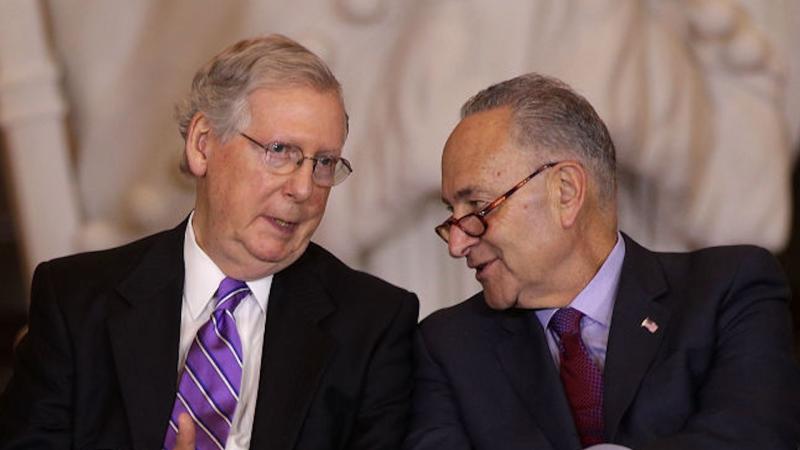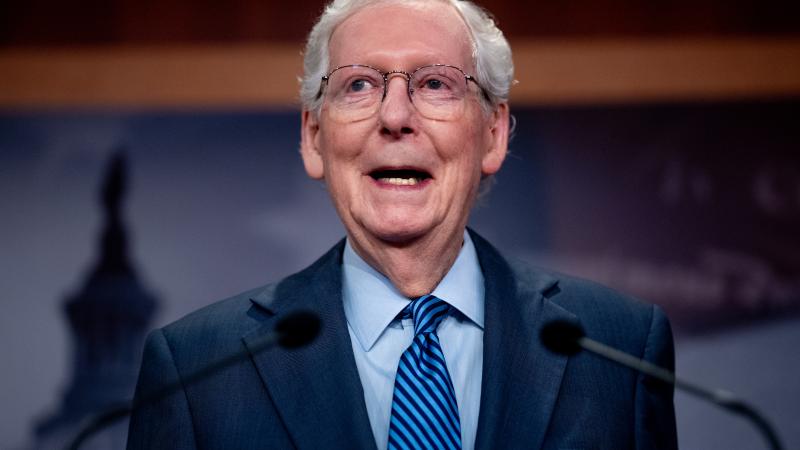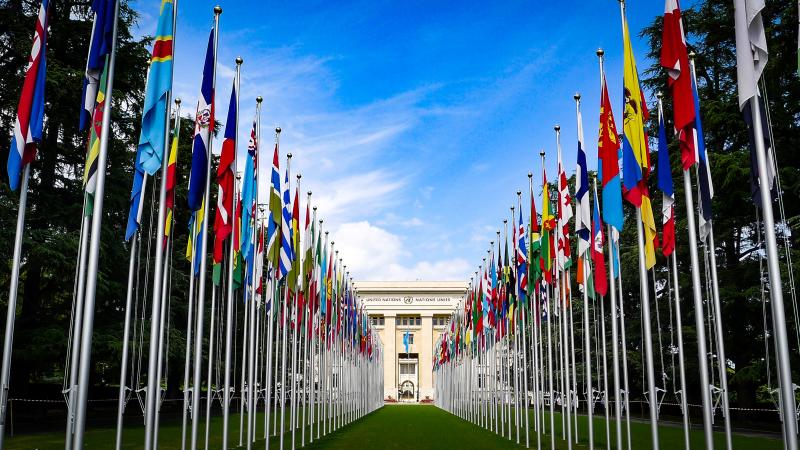Brits yank back COVID vaccination program as US plunges forward with one-size-fits-all strategy
Undercover video of purported Pfizer executive discussing how to mutate SARS-CoV-2 to keep vaccine "cash cow" going prompts investigative demand by Sen. Ron Johnson.
The U.S. one-size-fits-all COVID-19 vaccination strategy is becoming even more of an international outlier with the U.K.'s decision to stop giving boosters to people under 50 "who are not in a clinical risk group" — and ratchet back primary-series vaccination as well.
The Brits' same-day acceptance of the Joint Committee on Vaccination and Immunisation's recommendations Wednesday also stands in stark contrast to the FDA's oft-adversarial relationship with its Vaccines and Related Biological Products Advisory Committee (VRBPAC), which has been given limited information before votes on COVID vaccine authorizations, overruled or simply excluded from any role in key FDA decisions.
The strategy change comes as undercover video by Project Veritas purports to show a Pfizer executive admitting it was trying to mutate SARS-CoV-2 through "directed evolution" in monkeys to keep COVID a "cash cow" for the pharmaceutical company.
While Jordon Walker scrubbed his LinkedIn profile of all corporate references following the attention, he appears in screenshots as Pfizer's director of worldwide R&D strategic operations and mRNA scientific planning since June 2021.
That was immediately preceded by a year and a half as a consultant focused on "biopharma growth strategy" at Boston Consulting Group, which sponsored his "Mandarin language and business immersion" from November-December 2019, on the cusp of the Wuhan COVID outbreak.
Sen. Ron Johnson (R-Wisc.) cited the video Thursday in his call for Congress to "thoroughly investigate vaccine manufacturers and the entire COVID vaccine approval process," run by federal health agencies that have been "captured by Big Pharma and grossly derelict in their duties throughout the pandemic."
Pfizer didn't answer a Just the News query.
Europe's vaccination approach has long been more tailored than in the United States. Sweden, Denmark, Norway and Finland have either banned Moderna's vaccine under age 30 or 18 due to increased heart risks, or recommended young people take Pfizer's vaccine.
The U.K. Health Security Agency (UKHSA) emphasized to The Epoch Times in September that its vaccine offering for children 5-11 not in clinical risk groups from February-August 2022 was a "one-time, non-urgent" offering.
Only seven countries had authorized vaccines for children under 5 — none in Europe — when Insider reviewed different global regimes last spring. The U.S. soon followed, with the FDA promising congressional Democrats it would lower approval standards if needed.
The Brits' announcement Wednesday unintentionally highlighted their vast divergence on vaccine strategy from the Yanks, who repeatedly promoted the jabs as a brake on transmission and demonized holdouts as threats to their communities.
Parliamentary Under Secretary for Health and Social Care Maria Caulfield said the decision followed naturally from the U.K.'s focus on "reduction of severe disease (hospitalisation and mortality) across the population, whilst protecting" the capacity of the National Health Service.
Boosters for ages 16-49 will end Feb. 12, "the close of the autumn 2022 vaccination campaign," except for those in a clinical risk group. "Otherwise healthy" 5-49 year-olds can get a primary series or booster in the next seasonal campaign if they "develop a new health condition" that puts them at clinical risk.
Primary-series vaccination in general will become "more targeted": adults 50 and up, residents and staff in care homes, "frontline health and social care workers," 12-49 year-olds "who are household contacts of people with immunosuppression," and 16-49 who are "carers."
Caulfield said she was informed "all four parts of the UK intend to accept the JCVI's advice on the same basis."
The committee said its recommendations were informed by peak levels of prior infection, judging by antibody surveillance: 97% of adults, 93-99% of ages 12-15 and 74-98% of 8-11.
"Not all hospitalisations and deaths ascribed to SARS-CoV-2 infection are vaccine-preventable events," the committee said. "Revised estimates" suggest it would take 800 fourth-dose boosters in people ages 70 and up, 8,000 for ages 50-59 and 92,500 in generally healthy 40-49 year-olds to prevent a single COVID hospitalization.
The committee knew this in late October, according to a UKHSA presentation made public along with the recommendations.
It showed hospitalization rates in July were not meaningfully different by vaccination status in several younger age groups, while the vaccinated had substantially higher hospitalization rates in ages 40-69. "Severe" hospitalizations were higher for vaccinated 5-11 and 40-59 year-olds.
While the U.K. widened boosters beyond elderly and high-risk categories at the start of Omicron, third-dose booster update since April in ages 50 and younger has been less than 0.1% per week. Keeping that availability has "limited ongoing value," JCVI said Wednesday
Primary-series vaccinations have also "plateaued in recent months across all age groups," with under 0.01% of ages 12 and up getting a first dose since the start of 2022. More targeted offerings will "allow more efficient use of NHS resources," the committee said.
The committee's chair of COVID vaccination, Professor Wei Shen Lim, said the U.K. program "continues to reduce severe disease across the population, while helping to protect the NHS" by focusing its resources on "persons at higher risk of serious illness." It's recommending a spring booster for the most vulnerable.
The report is silent on post-vaccination adverse events such as myocarditis, which is more prevalent in young men.
The FDA, CDC and Department of Health and Human Services, whose recent tweets claim that low-risk groups could be hospitalized or die without bivalent boosters, did not respond to queries on the basis for their divergence from the U.K.'s more tailored approach.
The Facts Inside Our Reporter's Notebook
Links
- Joint Committee on Vaccination and Immunisation's recommendations
- given limited information
- overruled
- excluded from any role
- undercover video by Project Veritas
- scrubbed his LinkedIn profile of all corporate references
- Pfizer's director of worldwide R&D strategic operations and mRNA scientific planning
- consultant focused on "biopharma growth strategy
- Mandarin language and business immersion" from November-December 2019
- banned Moderna's vaccine under age 30 or 18
- recommended young people take Pfizer's vaccine
- The Epoch Times
- authorized vaccines for children under 5
- FDA promising congressional Democrats
- repeatedly promoted the jabs as a brake on transmission
- demonized holdouts as threats to their communities
- Maria Caulfield said the decision followed naturally
- UKHSA presentation
- Professor Wei Shen Lim
- recent tweets claim that low-risk groups could be hospitalized or die
















